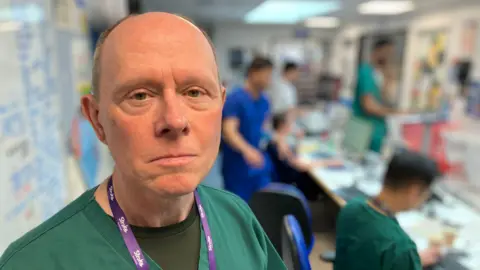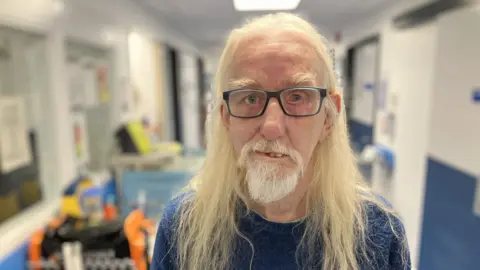AI project to improve outcome for stroke patients
 BBC
BBCArtificial intelligence (AI) is being used to help improve outcomes for stroke patients in Devon.
The project SAMueL-2, which stands for stroke audit machine learning, helps to identify which patients can receive a procedure called thrombolysis, which involves administering drugs to break down blood clots.
It has analysed a quarter of a million medical records from more than 100 hospitals.
Professor Martin James, a stroke specialist at the Royal Devon and Exeter Hospital, said AI and machine learning has provided an understanding of how thrombolysis treatment was used across the UK.

Professor James said: "What you can do when you have got such a large data set is to show doctors and nurses exactly what it was like when a drug was used in other cases on similar patients.
"So, you can increase their understanding of that balance of risk and benefit in an individual case."
Stroke patients have also been interviewed about their condition and treatment as part of the project.
Retired violin teacher, Leon Farmer, said he was delighted to be able to help others in future.
"Even in a small way, if I have contributed to thousands of people having a better quality of life, I can't think of anything else I would rather do - it's just fantastic," he said.
SAMueL-2 is an initiative involving The Royal Devon University NHS Foundation Trust and the University of Exeter.
Follow BBC Devon on X, Facebook and Instagram. Send your story ideas to [email protected].
